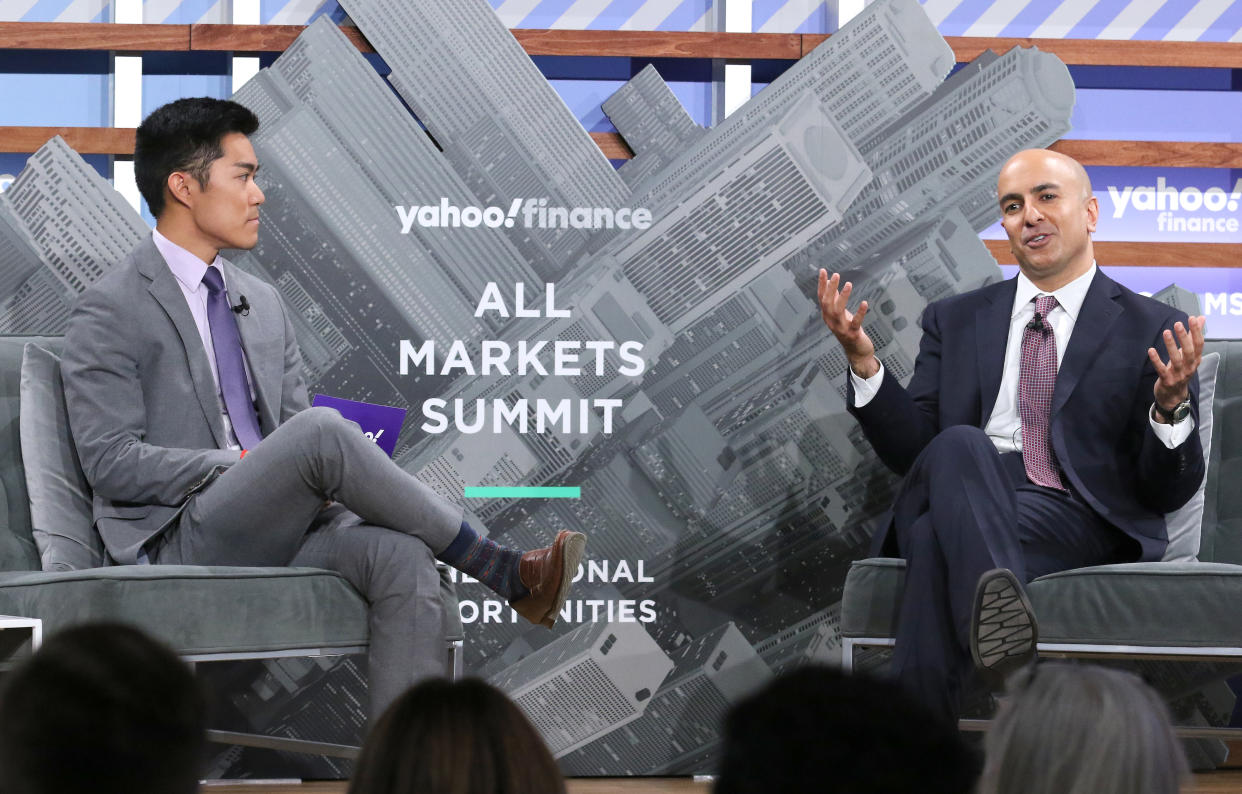Why the Federal Reserve matters to you
This article first appeared in the Morning Brief on September 2. Get the Morning Brief sent directly to your inbox every Monday to Friday by 6:30 a.m. ET. Subscribe
If there is one thing that we learned from Jackson Hole, it’s that the Fed tells markets what to do — not the other way around.
And on my last day here at Yahoo Finance, I have one parting thought: Americans interested in the Fed’s firefight with inflation should listen as well.
For the eight weeks leading up to mid-August, stocks bounced back and bond yields fell as investors began pricing in expectations the Fed’s rate hiking would soon end.
It took less than nine minutes for Fed Chair Jerome Powell last Friday to whip the financial markets into shape, making it clear that the central bank was not done with its rate hikes yet.
“We will keep at it until we are confident the job is done,” Powell said in remarks delivered at the Fed’s annual conference in Jackson Hole, Wyoming.
In just the week following, the S&P 500 slipped 6% and the U.S. 10-year yield climbed 0.16% to 3.27% — capping off an ugly August for the markets. In the process, those who questioned the resolve of the Fed’s efforts to quell inflation were left disappointed.
Speaking to Yahoo Finance last Friday, Cleveland Fed Loretta Mester described the summer's market action as "confusion."
Crypto markets had it confused for a time as well. Bitcoin was once heralded as the antidote to the Fed’s heavy hand over the market, creating a libertarian-like vision of a market where the masses — not the central bank — does the job of price setting.
These days, crypto appears to be trading like other risk assets. Head to any cryptocurrency blog or news site on a Fed decision day, and the top headlines are quotes from Powell’s press conference.
Another takeaway for investors: don’t ignore the Fed.
To go a step further, the un-invested shouldn’t ignore the central bank either.

After all, the Fed’s goals are not Dow 30,000 with a 3.50% yield on the U.S. 10-year. The central bank’s dual mandate is price stability and maximum employment, meaning that the immediate task for the Fed is curbing inflation without spiking the historically low 3.5% unemployment rate.
The Fed’s success or failure in pulling this off has real world implications. The prices you see at the store and your opportunities for employment are tied to Fed policy.
Furthermore, though not explicitly acknowledged by the Fed, the central bank’s effectiveness requires a little social nudging as well. The Fed's effectiveness in addressing economic imbalances relies on the public’s trust in the institution itself.
And in moments of economic duress, the Fed must instill confidence it will support the economy to avoid a full on panic. The central bank did that in 2008 and then again in 2020, when it propped up the U.S. economy and financial markets through a global pandemic.
As a Fed reporter who has covered this beat for the last four years, I know that financial markets watch the Fed with close attention. Sometimes too much.
Traders freak out over sterile words like “patient” or phrases like “act as appropriate.” Twitter blows up over some half-contextualized commentary from a reserve bank president.
But stop any American on the street, and very few of them will know about the steward of our economy.
A Pew Research study from eight years ago found that only about one in four people could name the chair of the Federal Reserve (Janet Yellen, at the time).
But we should all want to know more about the people who have the power to affect the job market that a college student graduates into. Or the receipt a family pays for the same Costco haul each week.
If there is any silver lining out of this period of inflation, it might be greater public interest in these matters.
Because a deeper understanding of the Fed and how it shapes our economy benefits everyone.
Read the latest financial and business news from Yahoo Finance
Download the Yahoo Finance app for Apple or Android
Follow Yahoo Finance on Twitter, Facebook, Instagram, Flipboard, LinkedIn, and YouTube
